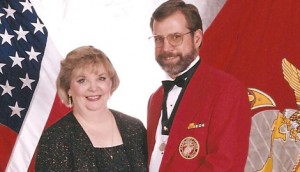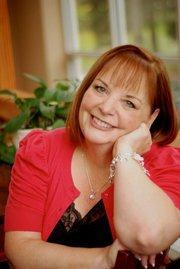Podcast: Download (Duration: 30:45 — 21.1MB)
The first sign that something might be wrong came in the recovery room when he wasn’t waking up as expected. That’s how Peggy Leinweber recounts the beginning of her husband’s journey with Lewy body dementia and the lessons of grace she ultimately learned.
In the recovery room that day, Peggy’s husband Mick was waking up from having a deviated septum repaired – a routine surgery that has most people up and on their way in a matter of hours. But as Mick awoke from the anesthesia, he had a negative reaction to a routine medication and needed an extended recovery.
Then in the weeks following the surgery, Peggy noticed Mick being less confident than his normal self. He also needed more structure in his day-to-day life.
That change in personality launched a string of doctor visits and counseling sessions to identify the root of the problem. The emotional tax of chasing the elusive answer proved draining on both Peggy and Mick and also their family.
As Mick’s distraction became more noticeable, he and Peggy met with doctors at Oregon Health Sciences University where Mick was finally diagnosed with Lewy body dementia, a progressive form of dementia that includes hallucinations, confusion and memory loss that can be terminal within seven years of diagnosis.
Finally getting a diagnosis for Mick provided a certain calm to Peggy because it provided a reason for the previously unexplained and often frustrating behavior. In seeking and now finding that answer, Peggy says she could deal with the situation beyond being frustrated.
Mick’s symptoms progressed and his inability to process information became random. Peggy says she would often need to give Mick small hints, but in tactful ways as not to promote agitation. It was important to respect him and validate him as a person.
For two years Peggy watched as Mick’s condition deteriorated at home. She watched as simple mental processing became very complex for him, to the point that Mick would even have delusions of people and animals in their backyard or even a dump truck in their driveway.
It became evident to Peggy that Mick’s needs for care had grown greater than she could provide within their home. So with the help of her children Peggy moved Mick into an adult family home.
Mick lived in a series of three adult family homes during that time and with every move Peggy realized how important it was to know if a facility could meet the current and future needs of a resident adequately. She says it’s important to understand a patient’s needs and know how a facility can meet them at the onset of care because each time a dementia patient is moved they also experience a slight cognitive decline.
Eventually, Peggy and her children decided to bring Mick home where their daughter became Mick’s primary caregiver. That time was filled with love and support from Peggy, and all four of the children, to provide their husband and father with the best care possible until his death at age 61.
Four years prior to his death, Mick, Peggy and their children had met as a family to discuss his end of life options. Peggy says the family met with a nurse, a pastor, and an ethics professor to help them process what the family wanted for Mick as the end of his life drew nearer. They discussed practical concerns like feeding tubes and IVs with a primary goal of Mick’s comfort. During the meeting the pastor asked, “Are we extending life or prolonging death?” What that did for Peggy was help address what the family thought it wanted and what was actually appropriate for Mick.
Mick has been gone for nearly two years, and although the experience of his illness was difficult and painful, Peggy says she believes there are purposes beyond the struggle and that experiences are meant to build people, not destroy people. She’s become an advocate for people who can’t speak for themselves and welcomes questions from families going through similar experiences. She also says these types of situations create questions about doing the right thing, but Peggy says she took comfort in the decision process the family went through with Mick. The process was all the more helpful because it was done as advanced planning.
Beyond that, Peggy says it’s important to separate a person from his or her circumstance. She says looking at her husband as a person, and not just a burden to care for, allowed her to give Mick honor and grace.
Peggy says caregivers should give themselves slack and try not to deplete their energies during the trying times of caring for an ill loved one.
Peggy and her late husband have lived in the Vancouver area since the 1970s and Peggy is currently an administrative assistant with World Venture.
 For a care packet of information about dementia, contact Peggy at peggyleinweber@gmail.com.
For a care packet of information about dementia, contact Peggy at peggyleinweber@gmail.com.
For help with finding a trustworthy caregiver: www.care.com
MedicAlert® + Alzheimer’s Association Safe Return® Bracelets
Alzheimer’s Association: 800-272-3900.
CREDITS
Audio by Naylene Frunk












Thank you so much for allowing my mom to tell our story. I was so amazed at the quality of the show. It sounded just like the interviews they do for Focus on the Family.
Shalom